|
The Gospel reading for the Fifth Sunday of Lent is the familiar passage of the adulterous woman and her accusers. For as long as I can remember, this story has been bittersweet: it involves targeted harassment and shame, but also redemption and conversion. At this point in Lent, I don’t think there is a more needed, or relatable, lesson for us to be reminded of and to work on accepting. So, we’re five weeks into our Lenten journey. We’ve been skipping meat on Fridays and trying to live without whatever convenience or vice we decided to give up or purge from ourselves. Maybe we’re praying a little more than we normally would or are setting aside a few minutes to read a daily reflection from those little black books left in the back of our churches. But even with all of these intentional and humbling acts and motivations, we often still feel unworthy or like we’re faltering. Because of this, it’s possible to say that we don’t even need the Pharisees to judge us and bring us for judgement before God – we’re doing it enough for ourselves. To overcome this, I want us to reflect on three things: personal attitude, an open heart, and recognizing what’s in front of us. I think sometimes we’re too hard on ourselves. We allow our own harsh judgements to replace the only one that truly matters: God’s. Our own personal attitude can prevent us from accepting and sharing in the love and grace of God if we constantly feel that we are unworthy or failing. In the Gospel, when the adulterous woman is brought before Jesus, it does not say that she cried or tried to run. In the Gospel account, she lays at the feet of Jesus, lets Him clear her name and, ultimately, lets Him forgive her sins. Here’s a secret I’ve learned that the Gospel has been trying to tell us for a few thousand years now: Man is never worthy on his own, but has been made so by Christ, who offers redemption to all. If man were worthy, Christ would not have needed to redeem us after the Fall. So, we need to stop allowing our own negative perception of our efforts to prevent us from bearing or receiving the fruits of God’s grace and forgiveness. Why was Jesus’ reaction effective with the woman? Christ did not condone her sin, but met the woman in her sinful situation with love and mercy. Surely, such a transformation is not possible without a profound encounter with God’s mercy, an openness to change, and conversion of heart. The adulterous woman of this week’s Gospel is told by Jesus to “Go, and from now on do not sin any more” (John 8:11). As a result of her encounter with Jesus, her heart was changed, and she spent the rest of her life trying to grow closer to Him. We are called to do the same – during the Lenten season or any other time. If we are open to the love of God, it will fill us and strengthen us in our actions. With a faithful attitude and a heart that is open to change, all that is left is for us to encounter God. In order to do this, we must recognize what is in front of us. In the challenges, relationships, beauty of nature, art, and moments of prayer, God is entirely present and inviting us to share in it with Him. What a beautiful gift, and how accessible and truly joyful this is for us! I want to suggest that each of us take a few moments each day this week to reflect on how we’ve gone out of ourselves to be with or grow closer to God. Instead of grumbling about how much we miss Netflix or those amazing chocolate caramels, be proud of yourself for being so committed to your solidarity with Christ and His own suffering. Or, if you tripped up, instead of getting frustrated with yourself, reflect on the three Stations of the Cross in which Jesus falls. Absolute perfection is never what God expects or even desires – He’s just pleased to recognize a desire in us to do better. For more resources to accompany you along your Lenten journey, please click here. Question for Reflection: How can you grow closer to God in the final days of the Lenten season?
0 Comments
“Remember you are dust and to dust you shall return.” We are now over a week into our Lenten journey; the reality has set in. We are questioning our decisions to give up sweets or the snooze button, and we are tired. Perhaps we have even failed a few times. The forty days seem to drag, and the somberness of the liturgical season has made itself known. Yet during the Ash Wednesday service at my parish, our priest was talking about the joy of the season and how our failures are meant to bring us closer to Our Lord. In a word, he talked about the hope of Lent. As someone who would rather stay in the joy and light of the Christmas season, I was really challenged by Father’s perspective, especially now, after my many failed attempts to give up the snooze button. We often focus so much on the “giving up” aspect of Lent that the words joy and hope do not seem to go hand in hand with this season. This is especially true when I think of the phrase that kickstarts our Lenten journey: “Remember you are dust and to dust you shall return.” On a superficial level, this sign on our forehead doesn’t look so good. Where are the hope and joy in having ashes smeared on your forehead? Throughout his homily, Father also encouraged us to change our perspective on the difficult acts of penance we are attempting and instead to live in the reality that this season could be a time of true conversion of heart. Our Lord desires us to be holy! The acts of penance we choose could be the very means He uses to break us of habitual sin and to bring a deeper level of charity into our hearts. Conversion of heart and holiness? I could get behind that; I can see the joy there! The priest did not say “if you fail your resolutions” but “when you fail.” This is a reminder of our weakness and utter dependence on Jesus, who will be making His way to Calvary soon, in Scripture, to save our souls. This dependence on Him will assist in our conversion of heart, considering “we can do nothing without him” (John 15:5). So: it’s alright to fail, but run back to Him. Beg Him for more grace! Now let’s read this sentence from the Ash Wednesday service one more time: “Remember you are dust and to dust you shall return.” Where is the hope there? Father explained that this is the most hopeful reality yet. Ultimately this reminder of our sinfulness and our death paradoxically represents the life we have in Christ, the Resurrection of Jesus, and the hope we have of entering into the Eternal Reward. Even though the phrase seems bleak, it can propel our hope throughout these 40 days. We have something to strive for, to live for, and to love for. Though I have failed at my Lenten resolutions more times than I have not, I pray with the hope that my humanity might be resurrected, that Our Lord may convert my sinful ways, and that I may remember that this liturgical season is less about what I do and more about what the Lord is doing in my heart to get me home. What are ways you need to be renewed in hope and joy? How can you accept the failures that come with penance and run to Jesus this Lenten season? “Remember you are dust and to dust you shall return.” For more resources to accompany you on your Lenten journey, please click here. “Peter and his companions had been overcome by sleep, but becoming fully awake, they saw his glory and the two men standing with him.” -Luke 9:32 Twice in the Gospels we hear of the trio of disciples sleeping at pivotal moments in Christ’s life and ministry: at the Transfiguration – in this Sunday’s Gospel – and in the Garden of Gethsemane during Christ’s Agony. Both times, Christ is in deep prayer. And both times, Peter, James, and John are “overcome by sleep.” I get it. The group of men have just hiked up a mountain. It would have been normal to rest after such a grueling endeavor. Similarly, in the Garden, Jesus took the three disciples to pray after the Feast of the Passover—a long, filling meal complete with wine. I think of all the times I’ve napped after a holiday meal and sympathize with Peter, James, and John. In these scenes, they are so human. They become tired and rest their eyes. And yet, because of their physical tiredness, they miss out on God’s glory. In this week’s Gospel for the Second Sunday of Lent, Jesus is transfigured and his three beloved disciples are offered a glimpse of the glory to come—not only the glory of the Resurrected Christ, but the glory that awaits all men and women who allow themselves to be transformed by his grace. This Lent, I find myself asking, “Am I asleep with his disciples? What’s causing me to shut my eyes to God’s glory?” These questions are what have guided my Lenten journey as I discern how to grow in holiness this season. Each year, the Church in her wisdom asks us to reflect on what is making us spiritually sluggish and helps us prepare for Easter through prayer, fasting, and almsgiving. By ramping up in these three Lenten tenets, we can grow in our ability to see God’s will and the Holy Spirit at work in our lives. Had the Apostles been awake throughout the entirety of Christ’s Transfiguration, they would have basked longer in this glory—fear and confusion would not have gripped them. Lent calls us to wake up, to be alert, not only for the Easter celebration, but for God’s invitation to greater holiness throughout our lives. Pope Francis highlights Lent as the continuation of the “journey of conversion.” This journey is a lifelong one. And yet, seasons such as Lent, which focus on an even greater attention to prayer, fasting, and almsgiving, often spur us deeper and further on this journey towards Christ. As Pope Francis encouraged in his 2019 Lenten message: Let us not allow this season of grace to pass in vain! Let us ask God to help us set out on a path of true conversion. Let us leave behind our selfishness and self-absorption, and turn to Jesus’ Pasch. Let us stand beside our brothers and sisters in need, sharing our spiritual and material goods with them. In this way, by concretely welcoming Christ’s victory over sin and death into our lives, we will also radiate its transforming power to all of creation. The goal of Lent is not only Easter, but Christ Himself. This Lent, may our participation in prayer, fasting, and almsgiving help us shake off the drowsiness that shuts our eyes to God’s glory. For more resources to accompany you throughout your Lenten journey, please click here. Questions for Reflection: Am you asleep with Christ's disciples? What’s causing you to shut your eyes to God’s glory?” In AD 590, when a man named Gregory—the abbot of St. Andrew’s Monastery in Rome—was called upon to serve as Bishop of Rome, he responded with an open letter to the Church: "Pastoralis curae me pondera fugere" — “I have thought to flee from the burdens of pastoral care.” In essence, Gregory pleaded to be spared the heavy and awesome responsibility of the office of bishop. His letter formed the opening lines of his work Pastoral Care (Regula Pastoralis), one of our church’s greatest works of pastoral theology by one of our church’s greatest shepherds. Interestingly, we celebrate Pope St. Gregory the Great’s feast on September 3, the day he was consecrated pope — not the anniversary of the saint’s death, as per usual — perhaps as a testament to the light of personal holiness and institutional reform that he exhibited during the dark days, literally the historical “Dark Ages,” of the church when he was elected. Though primarily addressing his soon-to-be brother bishops in Pastoral Care, St. Gregory’s words resonate with all those who exercise leadership and responsibility in ministry, especially in light of the painful days in which our church now finds herself. In times of turmoil, St. Gregory believed that God calls all the baptized faithful — laity and clergy, women and men, young and old — to the task of renewal in the apostolate. St. Gregory did not mince words when he called out leaders “who aspire to glory and esteem by an outward show of authority within the holy Church,” and as a result, “when those who go before lose the light of knowledge, certainly those who follow are bowed down in carrying the burden of their sins” (Pastoral Care, I.1). He observed, “For no one does more harm in the Church than he, who having the title or rank of holiness, acts evilly” (Pastoral Care, I.3). St. Gregory’s great handbook on pastoral care challenges the core values and virtues that ought to shape our Christian life and community. In aspiring to roles of leadership, Gregory makes the striking remark that “whosoever was set over the people was the first to be led to the tortures of martyrdom” (Pastoral Care, I.8). In other words, Gospel ministry in the footsteps of Jesus, especially for those serving in leadership, is a laying down of one’s life — one’s time, talent, treasures — so that the power of the crucified and risen Christ may live in us. The result is not necessarily “success,” but joy and salvation. In imitation of Jesus, true pastoral care conquers the love of power with the power of love. In calling others to holiness, what made Gregory truly “great” was that in spite of his strengths, he never lost sight of his own weaknesses, sins, failures, and need for constant conversion. He ends his work by stating: “I, miserable painter that I am, have painted the portrait of an ideal man; and here I have been directing others to the shore of perfection, I, who am still tossed about on the waves of sin. But in the shipwreck of this life, sustain me, I beseech you, with the plank of your prayers, so that, as my weight is sinking me down, you may uplift me with your meritorious hand.” (Pastoral Care, IV) In short, we Christian brothers and sisters need each other more than ever. We need each other to offer joy, consolation, encouragement, and a helping hand to one another. That is what makes ministry not only possible, but even worth doing. We hold out hope that our God never ceases to call forth church leaders and Christ followers like Gregory to lead us through the Dark Ages, in whatever age they seem to be dawning. When you hear the name St. Augustine, what do you think of? Probably something about the Confessions, arguably his most famous work. Or perhaps you remember that he is one of the first doctors of the Church. But do you know about his spiritual journey from youthful hedonism to prominent theologian?
St. Augustine was born in the mid 300s in North Africa to a Christian mother and a pagan father. Initially educated in rhetoric, as a teenager, Augustine embraced a life of comfortable vices, which he outlines in his autobiographical and philosophical work the Confessions. Eventually, his intellectual pursuits lead him to Europe, into and out of Manicheism (a dualist religion based on pure reason), and back toward the religion of his childhood. Through the evangelizing work of St. Ambrose, Augustine was finally baptized into the Christian faith in his early 30s. He went on to become one of the early Church’s most important philosophers. For cradle Catholics like me, our faith journeys are nowhere near as dramatic as St. Augustine’s conversion from corrupt youth to doctor of the Church. Nevertheless, there are always opportunities for daily conversion! The teenage Augustine would pray, “Give me chastity and continency, only not yet.” How often do we catch ourselves praying in a similar vein? “Give me temperance—but not until I’ve eaten three packages of Oreos”; “Give me a stronger desire for prayer—but maybe not until next week, after I’m done binge-watching this TV show.” Like Augustine, we often find ourselves wrestling with our human weaknesses and our desire to do things on our own timeline rather than God’s. But even as we struggle to overcome our personal vices, God draws us closer to Himself, taking our fractured pasts to create a beautiful whole. St. Augustine’s theological and philosophical treatises would perhaps have not been so fervent or persuasive had he not previously so fully embraced bad philosophy before his conversion. His secular education and his training in rhetoric and Platonic philosophy prepared him for his work defending true Christian theology and refining its philosophy—so much so that he is recognized as one of the original doctors of the Church. Long before Augustine had come to fully accept the Christian faith, God was already preparing him for his future role as bishop and philosopher. Likewise, our past does not restrict our future. Choices that ended up leading us seemingly nowhere, periods of doubt or conflict—God can take these moments of human weakness and use them to bring us closer to Him. Like St. Augustine, even a previous decade of promiscuity could remind us of how empty is a life not lived for Christ. St. Augustine is living proof that no one—no matter how seemingly corrupt, how spiritually lost, or how morally confused—is beyond the power of God’s grace. On St. Augustine’s feast day, let us consider where we are on our faith journeys. Where is there room for daily conversion? How can we learn from our past failures to more fully embrace a future lived with Christ? Question for Reflection: What failure can I use from my past to build up my relationship with Christ? In the most beautiful chapter of the best work of one of the greatest Catholic theologians - in my opinion, anyway - Saint Augustine tells the story of his mother, Saint Monica.
Saint Monica was born to a good Christian family but she had little luck in marriage. She was married at a young age to a man named Patricius, and they had three children together. He was a pagan, he was angry, and he was unfaithful. But Monica was patient and merciful. Despite Patricius’s evil ways, she served him with devotion, mercy, and constant prayer. At the end of his life, only one year before he died, her daily prayer and kindness were rewarded and Patricius was baptized into the faith. But Patricius’s conversion did not end Monica’s sorrow. Augustine was seventeen when Patricius died, and his conduct was worse than his father's. He was brilliant, but lazy. He drank excessively, stole, and lived promiscuously. The year his father died, Augustine fathered a son of his own out of wedlock. Despite Monica’s urging, Augustine refused to settle down and get married. Worse still, Augustine rejected his mother’s faith and joined the Manichean cult. But Monica never ceased her kindness and prayers. She followed Augustine as his teaching lead him to Carthage, to Rome, and to Milan. In Milan, Monica met Saint Ambrose, then a bishop. In serving in his church, she came to know Ambrose well, and Ambrose came to understand her sorrow for her son. He comforted her, saying, “Surely the son of so many tears will not perish.” Her prayers were eventually answered. A year before she died, Augustine was baptized. He went on to become one of greatest saints in history. As she lay dying, Monica told her son that her life’s work was complete. “One thing there was, for which I desired to linger a little while in this life, that I might see you a Catholic Christian before I died. God has granted this to me in more than abundance, for I see you his servant, with even earthly happiness held in contempt. What am I doing here?” (pg 223). Saint Monica gives us a powerful example of the influence of intercessory prayer (CCC 2634-2636). Monica did not use words to persuade Augustine to convert. Instead she led by example, living with kindness and praying on his behalf. For thirty-two years she patiently prayed for his conversion, and God rewarded his faithful servant. We are called to do the same. The Letter of James says, “Pray for one another, that you may be healed. The fervent prayer of a righteous person is very powerful” (James 5:16) and Jesus tells us, “Amen, amen, I say to you, whatever you ask the Father in my name he will give you.” (John 16:23). We are all sinners and we all need God’s intercession. But we are not alone. God desires us to pray for our own forgiveness and for the forgiveness of others. That is why we pray “forgive us our trespasses” and not “forgive me my trespasses.” People are difficult. We treat each other with anger, unfaithfulness, and unrepentance. But rather than meet those that harm us with our own shortcomings, let us instead follow Saint Monica’s example and live a life full of kindness and prayer. Pray for God’s help, pray for the forgiveness and conversion of others, and Saint Monica, pray for us. St. Monica’s feast day is celebrated on Monday, August 27, 2018. What does it mean to be a faithful Catholic? We are often quick to answer this question with things like Mass attendance, frequent confession, respect for all life, serving the poor and vulnerable, and advocating for those without their own voices. In other words, we might answer this question with action verbs, or phrases that suggest doing. However, identifying as a Catholic requires just as much being as doing; as Catholics, we are called to be in right relationship with God, others, and ourselves. Being in right relationship means that in all parts of our lives, there is an order to what we do, love, desire, value, and move towards; this order is one that is rooted in God, sustained by constant conversion to him, and ultimately fosters lasting communion with him in this life and the next. There are many things in our lives that prevent us from being according to this pattern and order. For many of us, things like tragedy, addiction, animosity, violence, mental illness, polarization, and trauma have weakened our trust in God and the goodness of others. Our hearts can be exhausted by divisions within our own families, numerous transitions in our careers or geographical locations, failed plans and dreams, and the restlessness that comes with the seasons of waiting in our lives. Sometimes, we find that our hearts have become worn down and afraid in all that life has asked us to carry. Like illness or a disease, leaving these wounds of the human condition untreated poses a hazard to our being. Trying to live out our faith without seeking some form of psychological and emotional healing for these wounds causes our views of ourselves, God, and others to become distorted, preventing order and harmony from forming in our lives. Untreated emotional and psychological injuries and pain show themselves in the ways in which we seek to serve God and others. We sometimes put up “walls” around our hearts and push others away because we’ve been so damaged by close relationships. We might become obsessively self-interested because we see our value and dignity only in relation to our careers and material success. We might see God as angry, malevolent, and seeking retribution because we haven’t forgiven ourselves for our past sins or mistakes. All of these feelings and responses are part of being human. Thankfully, because they are part of being human, they can be healed and redeemed. This is why it is crucial to form ourselves not only spiritually, but also through emotional and psychological healing. The parts of us that have a large role in being - our emotions, mental state, and psychological health - are invaluable to living out our vocations to holiness. We cannot give life, love, and mercy to others if we don’t first have a sense of those things within our own selves. Certain tools can help with this type of human formation: conversations with trusted and wise friends, support from a mentor, spiritual direction, counseling, and therapy. As Catholics, it is important to reflect often on the journey of our lives, look at the cuts and scrapes we’ve acquired along the way, and participate in God’s healing by seeking tools that foster our ability to be. It is through the nurturing of our being that we are then able to bring life through our doing. As Catholics, we are part of a Church that calls us to “go forth” to serve God and others. Individually within our hearts, what kind of place are we “going forth” from? One that is broken and acts out of insecurity, self-interest, anger, or pain? Or one that is undergoing healing, characterized by a desire to live in the freedom of God with others? What kind of healing might we be called to seek?
Editor's note: In honor of the Solemnity of Saints Peter and Paul, a new blogger for the Catholic Apostolate Center writes about the nature of Christian brotherhood and friendship. Check out our post from last year on Peter and Paul for a little background on these great friends and evangelists.
To my fellow Christian brothers, Nothing worth doing in life is easy, and the Christian ideal is certainly no exception. As the profound early 20th century apologist G.K. Chesterton said in his book What’s Wrong with the World, “The Christian ideal has not been tried and found wanting. It has been found difficult; and left untried.” Those who recognize the Cross are called, now more than ever, to take it up. But do not try to bear the Cross alone: find other men who have accepted the weight of the Cross and have allowed God to write it on their hearts. Bear your burdens together. When you bear the Cross with your brother, you begin to form a real friendship with him – one based in vulnerability. We don’t often bring up vulnerability when talking about manliness, but it is one of the most vital qualities to have in the effort towards holiness. When Christ became man, this was the ultimate act of vulnerability. It did not stop there, though. Christ exemplified perfect holiness through His ultimate sacrifice on the Cross. By getting to know the true nature of your brother, you enter into a state of vulnerability with him where you can then challenge him to make strides towards holiness. When I asked Brother Barnabas, a Benedictine monk at Saint Vincent College, to weigh in on the topic of manliness and male Christian friendship, he recalled a time when he lived in a house with some close friends. “There certainly was a time for fellowship, especially when we had visitors,” said Brother Barnabas, “but when it was just us men around the table, we used to say, ‘alright guys, armor off.’ That’s when we would truly expose our hearts to each other and allow the Holy Spirit to strengthen us.” The relationship Barnabas talks about is the sort of relationship that binds men together and transcends spending time with your “bros.” It’s the type of relationship that doesn’t necessarily seem intuitive for men. Our culture usually portrays women as the ones who are willing to be honest and open with one another. Men are supposed to be stoic and reserved – they’re supposed to bear their sufferings quietly. Yet, we need to have the courage to reveal our true selves with absolute honesty to other men. When needed, we must have the courage to make sacrifices for our brothers and allow them to make sacrifices for us too. The burden of the Cross becomes lighter when you have a brother bearing it beside you. In the daily effort of conversion to the will of God, having a true friend can sometimes make all the difference. The Christian ideal is not easy to follow. We as men must come together, leave the armor at the door, and allow the Lord to work through our cooperation in becoming holy together. As the Lord leads us to holiness, let us ask him in the name of the Father, and of the Son, and of the Holy Spirit to give us brothers for the journey. Amen. Question for Reflection: Do you have friends with whom you can be vulnerable? In what ways can you help your friends bear their crosses? My husband and I lingered in the Church a tad longer than usual the last Sunday of Christmas. We were taking in the beauty of the liturgical season—the lights, trees, colors, the Nativity—ultimately basking in the hope that is born from the Word made Flesh who dwells among us. To be frank, we were also lamenting the season of Ordinary Time that was next, followed by the Lenten Season. We were lamenting the transition from the hope-filled season of Advent into the Lenten journey that leads to Good Friday, where the babe in the manger becomes the suffering servant on the Cross. With Advent lasting for the shortest amount of time this year, and Lent approaching quickly thereafter, I find I am still reflecting on the Mysteries of the prior Christmas season. I suppose I am still sitting in my parish church reflecting on the Wise Men bringing the Child Jesus gifts, reflecting on the idea that a child caused conversion. Highly educated adult men encountered a baby in a stable for animals, and this encounter prompted a change of heart. I would prefer to stay in that time of hope and joy rather than enter into the gore and the sacrifice of the Passion. A few weeks ago, I was reading a reflection in the Magnificat, a daily Mass companion, about the conversion of the Thief on the Cross. The author mentioned that the thief went through a conversion upon encountering the Lord, bloodied, beaten, on the verge of death. The author asks, “What is it that brought the conversion to the thief?” Jesus was in a position of shame, and yet the thief sought repentance and salvation. How could this be? Jesus as the Messiah would have been hard to believe based on His appearance and vulnerability on the Cross, particularly to a thief who had lived a life worthy of crucifixion. Jesus as a child wrapped in swaddling clothes and Jesus on the Cross have the ability and desire to convert souls. Jesus is Lord in every season. He wants our hearts. Christmas seems so beautifully packaged; it can appear that Jesus as a child is sweeter, warmer, more approachable. Yet the story of the Good Thief shows that Christ can also be approachable in his ability to suffer with and for mankind. The thief’s conversion on the cross invites us to approach the bruised and beaten Lord with our own trials and hardships. I was fearful to head into the darkness of Lent, forgetting that Jesus wants to be with us, in His vulnerability, even in our difficult times. Whether we are fleeing suffering, undergoing trial, or in a stagnant time spiritually, we must not put limits on Jesus’ desire for closeness with us, especially as we enter into the season of Lent. If you are struggling with the beginning of the Lenten season, desiring to stay back in the light and joy of the Christmas season like my husband and I, remember that Jesus wants to enter into your Lenten journey, into each season of your life. If you open yourself to him as the Good Thief did on the cross, he can and will grab your attention and be present to you during this season of fasting and preparation. Let us pray for hearts that are open to God’s graces during Lent, open to an encounter and conversion with Christ during every season of the heart. Question for Reflection: Are you struggling to enter into the Lenten season? How can you more deeply invite Christ into your Lenten journey? Click here for resources to accompany you throughout your Lenten journey. 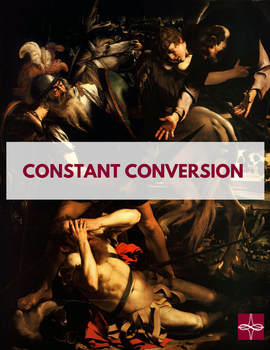 The story of St. Paul has always been one that has touched me to my very core. To think that someone who was persecuting the Church—who saw to it that the very first martyr, Stephen, was stoned to death—would eventually leave everything to follow God’s will for his life is truly extraordinary. But the story of St. Paul, although extraordinary, is not something beyond our reach. Some of us have experienced massive conversions in our lives—whether they involve entering the Church for the first time or returning to the sacraments after a time away. Some of us have had conversions of mind and heart when it comes to embracing what the Church teaches in regards to morality. Still others experience ongoing, undramatic conversion throughout their lives. Regardless of our individual experiences, the conversion of St. Paul can inspire us to encounter Christ in a deeper way that leaves us transformed. The Church does not celebrate the feast of the conversion of St. Paul merely for that moment of initial encounter and conversion. We celebrate it because of how it changed absolutely everything for Saul, now Paul. Paul met Christ personally; and this encounter guided his decisions and actions for the rest of his life. And so it must be with us! Shortly after Paul’s conversion on the road to Damascus, Acts 9:18 describes how after a conversation with Ananias, “things like scales fell from his eyes.” It was only after this that Paul was able to go and preach the good news of the Gospel—the good news that changed everything for him. Although we may not be knocked blind by a voice in the heavens, most of us do have scales on our eyes that prevent us from truly seeing and knowing Christ and spreading the Gospel. Whether we experience scales of sin, shame, bitterness, or inadequacy, we must remember that God desires constant conversion for us. Just as He so faithfully spoke to Paul in his conversion, He is inviting us to the same thing—the promise that a life turned toward Him will be better than anything our clouded eyes could imagine. This will manifest itself in our lives in any number of ways—through reconciliation in a relationship, returning to confession, or an increased disposition of mercy for those in our lives who need it. By allowing our lives to be constantly converted, we will be equipped, encouraged, and enabled to share the news that changed everything for Paul 2000 years ago and that continues to change everything for us now. Let us pray and ask the Lord for a deeper encounter with him. May he continually remove the scales from our eyes. St. Paul, pray for us! Questions for Reflection: Have you experienced a powerful moment of conversion or has your spiritual life been one of ongoing, gradual conversion? What might be some “scales” in your life that prevent you from living as a missionary disciple? “[Jesus] saw a man named Matthew sitting at the customs post. He said to him, ‘Follow me.’ And he got up and followed him (Matt 9:9).” St. Matthew (a tax collector, dishonest and greedy) accomplishes what usually seems like the most difficult task: simply following Jesus. The calling of St. Matthew reminds us that authentic Christian life is quite simple: Get up and follow Jesus. This could also be summed up in the words of St. Faustina, to whom Jesus revealed His message of Divine Mercy, “Jesus, I trust in You.” As we all know, the Christian life is not always that simple. There is something to be said about why stories of the saints and stories of converts to the Faith are dramas of the highest caliber. I think we can learn a lot about the drama of the Christian life through the works of T.S. Eliot, one of the twentieth century’s major poets. Eliot converted to Christianity in 1927 when he was 39 years of age. He became more fervent in his faith until his death in 1965. Eliot’s poetry is often divided by his conversion. Before his conversion, his notable works are “The Love Song of J. Alfred Prufrock” (1915), The Waste Land (1922), and “The Hollow Men” (1925). After his conversion, he is known for “Ash Wednesday” (1930) and Four Quartets (1943). Four Quartets is often considered to be one of the most important works of the twentieth century; it led to Eliot’s winning of the Nobel Prize for Literature, and in my opinion, is the most incredible summation of the Christian life in poetry—only surpassed by Dante’s Divine Comedy (1320). Without revealing too much about the poem (I hope that you will read it here!), I wish to share with you a relevant section. Eliot writes about the saints whom we should emulate, and how difficult that is: And what there is to conquer By strength and submission, has already been discovered Once or twice, or several times, by men whom one cannot hope To emulate - but there is no competition - There is only the fight to recover what has been lost And found and lost again and again: and now, under conditions That seem unpropitious. But perhaps neither gain nor loss. For us, there is only the trying. The rest is not our business. This section can be found in the second of the Four Quartets, “East Coker,” in the final section of the poem, section five. On one level, Eliot is speaking about writing, and the timeless struggle to produce great literature. He is probably referring to Shakespeare, Dante, and other great authors in regards to emulation. On another level, Eliot is commenting on the Christian life and emulating the saints that have come before us. Eliot speaks of the struggle of living an authentic Christian life— “There is only the fight to recover what has been lost / And found and lost again and again.” But he sums up the task of Christian life quite simply, like the Scripture passage in the calling of St. Matthew: “For us, there is only the trying. The rest is not our business.” We shouldn’t let ourselves be consumed with all the exterior drama and complications of everyday life (though these things are important to function effectively in the world), but with the simplicity of Christian life. Get up and follow Jesus, and don’t ever stop trying. And read some TS Eliot in your spare time! Question for Reflection: What prevents you from simply getting up and following Jesus? 9/1/2016 Reading the Book of Creation: Reflections on the World Day of Prayer for the Care of CreationRead NowOn the Feast of the Transfiguration, August 6, 2015, Pope Francis established the “World Day of Prayer for the Care of Creation” to be celebrated annually on September 1. In doing so, the Holy Father shared his concern for creation with Ecumenical Patriarch Bartholomew, who initiated a similar day of prayer in the Orthodox Church in 1989. For Pope Francis, the World Day of Prayer for Creation reminds Catholics of our “vocation to be protectors of God’s handiwork,” a calling and responsibility which is “essential to a life of virtue; it is not an optional or a secondary aspect of our Christian experience” (Laudato Si’ 217). As we celebrate this second annual World Day of Prayer for Creation, it is fitting to reflect on our vocation as Catholics to care for creation. Though we have a long-standing tradition of caring for creation that goes back to the early Church Fathers and has been promoted more recently by Pope Emeritus Benedict and Pope St. John Paul II, Pope Francis has brought this aspect of our faith into the limelight. I believe there are two main reasons for this: conversion and evangelization. The ecological crisis, the Pope tells us, is a summons to profound spiritual conversion that leads to developing a deeper relationship with the world around us and recognizing that “the life of the spirit is not dissociated from the body or from nature or from worldly realities, but lived in and with them in communion with all that surround us” (LS, 216). We are called to live in the world, not apart from it. We get to the spiritual through the physical. Pope St. John Paul II also taught us this in his Theology of the Body. This conversion also involves recognizing our sins against creation. In Laudato Si’, Pope Francis reminds us that “human life is grounded in three fundamental and closely intertwined relationships: with God, with our neighbor and with the earth itself” (LS, 66). Our faith exhorts us to live well, not only with God and with our neighbor, but also with the earth. One practice for this World Day of Prayer for Creation could be to examine our consciences and consider how we have treated the created matter with which we have been entrusted. Have we been selfish and unconcerned for the needs of others, consumeristic, gluttonous, unaware of the gift that creation is to us? Perhaps we have wasted food, water, or energy unnecessarily. Perhaps we watched hours of Netflix when we could have been outside walking with a friend, serving the poor, or contemplating nature. Do we feel compelled to have the latest iPhone or the largest car? Our Holy Father points out that we need to “replace consumption with sacrifice, greed with generosity, wastefulness with a spirit of sharing,” and he quotes Patriarch Bartholomew in exhorting us to cultivate “an asceticism which ‘entails learning to give, and not simply to give up. It is a way of loving, of moving gradually away from what I want to what God’s world needs.’” (LS, 9). In our process of conversion we can follow the example of Pope Francis’ namesake, St. Francis of Assisi, in doing the inner work needed to embrace creation as “Brother” and “Sister.” I believe that Pope Francis, like the two popes preceding him, also sees our Catholic concern for ecology as a path into the New Evangelization. The beauty of creation speaks to the heart and can awaken human persons to a deep interior longing for the divine source, for the Creator God. Great spiritual writers like St. Bonaventure called the created world the “book of creation,” because the created world is constantly speaking to us of God. As humans we learn to understand the language of creation by spending time outside, by developing a heart for creatures, by learning to see the vestiges of God’s love in the beauty, diversity, and extravagance of the natural world. In doing so, we come closer to God and to understanding his plan for us and for the world. It’s a two-way street: We need to learn the language of creation in order to better care for the created world. At the same time, in that conversation, we are drawn into a deeper relationship with God, the Creator. As we experience this ourselves, we are driven to share the experience with others in a new kind of evangelization. In our fast-paced world, being attentive to creation reminds us that “we are not God” (LS, 67), for if we pause and look at the beauty surrounding us, we experience a beauty that transcends anything we humans can create. At the same time, we become aware of our unique creation as humans and the moral structure inscribed into our very nature (LS, 155). Being outdoors is also a healing tonic to assuage the effects of technology and the pressures of the virtual world in which we spend so much of our time. It is an antidote for the “technologization” of society and keeps us in touch with true reality. Let us then, as we celebrate this World Day of Prayer for Creation, embrace with joy the opportunities for conversion and evangelization that lie ahead! Click here for more resources on ecology, the World Day of Prayer for Creation, and Laudato Si.
August 27th marks the feast of St. Monica, mother of St. Augustine of Hippo. St. Monica spent seventeen years praying for the conversion of her son, whose reputation for hedonism and religious skepticism preceded him. St. Monica is said to have wept for her son Augustine every night. Her devotion to him is an example of what it means to love unconditionally, even when it hurts. As a new mother, I have spent many hours reflecting on the mystery of unconditional love and have recorded some of my thoughts below. Let us turn to St. Monica when our hearts are weak and we need help loving as God calls us to love. St. Monica, pray for us. “This is my body, which will be given for you” (Luke 22:19). Christ’s words at the Last Supper never fully resonated with me until I became a mother. From the moment of her conception, I gave up my body to my daughter. Baby books, friends, and other women warned me of the physical tolls of pregnancy--the aches and pains, the nausea, the swollen feet, the labor--but I was unprepared for the physical sacrifices afterward. My body is not my own. It is at service to a squirmy, snorty, sweaty being who doesn’t even realize how needy she is. And yet, this physical sacrifice is good and necessary. It has helped me to remember that God wants all of us. Not just our souls and intellects, but our bodies too. I am an intellectual person by nature and often use my love of study to learn about God. But learning about God and knowing God are not the same thing. Just like reading about how to ride a bike and actually climbing up on the seat are not the same. It is easy for me to pick up another historical commentary on the gospels and feel like I am improving my relationship with God. It’s hard to deny myself a second cup of coffee. It’s hard to place my phone in another room and walk away. It’s hard to lower myself onto my knees to pray, or even to sustain prayer for longer than a minute. These bodily actions are hard because they require sacrifice. And yet, I suspect the sacrifices I make for God are more important to him than whether I know if Jesus was born in cave or a wooden stable. Motherhood, too, is a bodily commitment and one that can be difficult to embrace with joy. I sacrifice my body in a small way every time I stop what I am doing to nurse my baby, or to get down on my knees and engage her in yet another game of “rub the belly, rub the belly”. Yet, as I commit to these physical tasks, I hope I also die to self a little more each day. With each physical act, with each twinge between the shoulder blades, I remind myself, that--in a much bigger way--this is what Jesus did for me on the cross. Ironically, it actually was a book that helped me to understand the beauty of bodily sacrifice. No, it wasn’t the Bible, or Pope Francis’ Amoris Laetitia, it was The Giving Tree, by Shel Silverstein. The gist of the story is that a tree continues to give and give to a boy throughout the boy's life to make him happy. First she gives him her apples so the boy can sell them for pocket money, then she gives him her branches so that he can build a house, then her trunk so that he can build a canoe. Eventually the tree is reduced to a stump and the boy hasn’t visited her in years. And yet the refrain after each gift is, “And the tree was happy.” By the end of the book, my husband found me lying on my back crying while my daughter kicked her feet unconcernedly next to me. Our conversation went as follows: “I told you not to read that book!” “It’s just so stupid! The boy is so ungrateful! The tree gave him everything and he never even said thank you. She literally let him cut down her trunk for him. It’s not fair.” “Would you do that for Elizabeth?” My answer was immediate. If motherhood has taught me anything, it’s what it means to love unconditionally. And the craziest part is that my bodily sacrifices to Elizabeth don’t even compare to Christ’s sacrifice for me. Truly, to be loved by Christ is a humbling thing. Click here for more resources on Marriage and Family. The presents have been unwrapped, the carols have been sung, and the cookies have been baked and enjoyed. Most, if not all, of the Christmas decorations have been packed away until next year. We have officially entered into Ordinary Time. Why can’t this Christmas feeling of peace and hope, joy and love last all year long? I continually try to instill in those that I work with that their health and wellness is a journey. This journey is filled with peaks and valleys, calm and storm, joyous victory, quiet contentment and fierce struggle. Our faith is no different. Living our faith, living the life of Christ and, more importantly, the life Christ calls us to, is a journey. In the quiet of the post-Christmas excitement, let’s take a moment to ponder what we’ve recently celebrated. We have just completed a series of liturgies celebrating the Incarnation, the word made flesh. The United States Conference of Catholic Bishops defines the Incarnation as “the fact that the Son of God assumed human nature and became man in order to accomplish our salvation in that same human nature. Jesus Christ, the Son of God, the second person of the Trinity, is both true God and True man, not part God and part man.” The wonderful thing about this fact is that we know this is only the beginning of the story. Our wonder-counselor came down from heaven to preach and to heal. When He willingly sacrificed himself on the cross He atoned for our sins. Even then, the story is not over! In His rising from the dead and ascension into heaven, He remains with us. The second person of the trinity willingly sacrificed Himself so that we can experience Emmanuel in every moment and breath of our lives. God is no longer in a burning bush. His love, His very presence is burning within our very bodies. Do we truly believe this with all of our mind, body, and soul? Welcome to Ordinary Time. Ordinary Time is when our journey begins. The United States Conference of Catholic Bishops expresses for us that “this is the time of conversion,” a time for growth and maturation in living our faith. Where do we need to experience conversion in our own hearts? Where do we need to share our conversion? Perhaps our present journey is meant to be walked alongside someone else. Where is that burning presence guiding you during these weeks of Ordinary Time? The actual season of Christmas may be over, but the journey has only begun. As you ponder and reflect on these questions in your heart, I leave you with these words from the hymn Jerusalem My Destiny. I have fixed my eyes on your hills, Jerusalem my destiny! Though I cannot see the end for me, I cannot turn away. We have set our hearts for the way; This journey is our destiny. Let no one walk alone The journey makes us one. Composer: Rory Cooney (1990) My prayer for you during these “ordinary” days and weeks ahead is that you choose to kindle that fire within you daily. I pray that you choose to live the Real Presence with every beat of your heart. As Christ proclaimed to the little girl in Mark 5:41 “I say to you arise!” Let each of us respond to that same call. My friends, arise and journey on! They bought into the lie—that nothing had changed, that their dreams were stifled, that death prevailed. The locked doors reflected their locked hearts. Like anyone, they were afraid, inconsolable, at the point of despair. Save one—a virgin. She continues to model to us today what it means to live faith, what it looks like to be a disciple.
The fear of the disciples in the upper room is understandable. They had abandoned the man whom they had left everything to follow for three years. The same man they had pledged to follow unto death had been tortured and killed as their backs were turned, as they cowered for their own lives. Their hopes of a restored Jewish kingdom, a glorious king from the line of David, freedom from Roman rule and the return of God’s presence to the Temple seemed to be nailed to a cross on Golgotha, laid in a tomb hewn from rock. They had yet to see God’s plan amidst the perceived failure. How could this be God’s plan? It was so unlike their own. Their fear is our own. It is the fear of unmet desires, of unworthiness, of death, of uncertainty, of perceived silence. Like the disciples, we often fail to see God’s plan in our lives. We look around in despair and sense that He is silent. We live the reality of death, confusion and suffering and say, “nothing good can come from this.” But as the disciples quickly realized, our ways are not God’s ways. Our wills are not yet one. Much stands in the way: selfishness, greed, egoism, materialism, pride. All changes with the coming of the Holy Spirit. What makes a law-abiding Jew abandon his persecution of Christians in favor of joining them and proclaiming the Christ to Jerusalem and Rome? What makes uneducated fisherman leaders of the universal Church and martyrs for the faith? What makes the son of a wealthy Italian merchant the begging founder of a religious order and a friend of the poor? What makes a cloistered nun in Lisieux a Doctor of the Church? What makes a German priest in Auschwitz volunteer to die in place of a father? What makes a modern day Italian mother and doctor offer her life for that of her child? The Advocate, the Holy Spirit. It is the Holy Spirit who is the game changer for the Church—what will now set the disciples apart from the whole world and what continues to set Christians apart today. The Holy Spirit is the active agent of conversion in man, the third person of the Trinity who opens up the Scriptures and sets our hearts on fire. It is the Holy Spirit who enables us to live our mission. The Holy Spirit, God’s love, is the difference between the fearful men in the upper room and the on-fire disciples of Christ preaching the Gospel and converting thousands in a single day. In the Gospel today, Jesus prays for his followers in the Garden of Gethsemane while also speaking directly to you and me. He prays for something seemingly impossible: “that they may all be one” as the Trinity is one. Christ speaks these words not to frustrate his followers but to call them to a perfection possible through God alone. He utters these precious words knowing he will be sending the Holy Spirit to enable man to do this. The goal is outward. This communion—the call to unity—must lead to mission: “that the world may know that you sent me and that you loved them.” God’s love is efficacious. It cannot be contained but must be proclaimed to the world. Only God could deign to give man so dignified and impossible a call. And only God could enable man to fulfill it. This high priestly prayer of Jesus (which encompasses John 15-17) is one of my favorite parts of Scripture. It is so imbued with Christ’s love for us. The purpose of the Incarnation is about to be revealed. Christ is living his last moments and wants to remind his followers, you and me, why he came: to reveal the Father, to invite man to eternity with Him and to assure man of his lovable-ness in the eyes of God. This love of God is meant to abide in us and reach out from our hearts to the hearts of others. This is only possible through the Eucharist, which physically is Christ’s love present in us and which is made possible through the Holy Spirit. God himself calls us, but God himself equips us…with Himself. It is astounding to what we are called: to holiness, divine love. This is the Christian destiny, but not our inclination. Like the disciples, so quickly do we turn inward. So quickly do we lock the door in fear. God calls us to sanctity, which can only be achieved after an experience of the fire of God’s love. We call this Pentecost, the same outpouring of the Holy Spirit that we receive in Baptism and Confirmation. The same outpouring of the Holy Spirit that we receive every Sunday in the form of the Eucharist. Are we being transformed by this grace or do we remain in the upper room? I challenge you to go back to your own story, your own moments of conversion. When did you fall in love with God? Have you? Only armed with the certainty of being loved will we be able to love others and live out the communion and mission Jesus calls us to. And so we call upon the Holy Spirit, the love of God Himself, who was breathed out upon the disciples at Pentecost in tongues of fire. We ask the Holy Spirit to breathe new life within us, within the Church. We ask the Holy Spirit to transform us with the fire of God’s love. This results in unlocked doors, an empty room. The disciples emerged, transfigured. Will you? Kate Flannery is pursuing a Master's degree in Leadership for the New Evangelization at the Augustine Institute in Denver and graduates in May. |
Details
Archives
July 2024
Categories
All
|
About |
Media |
© COPYRIGHT 2024 | ALL RIGHTS RESERVED

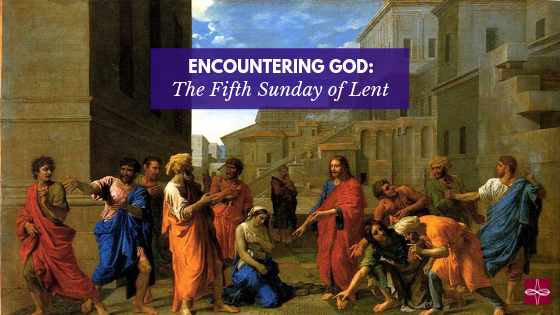
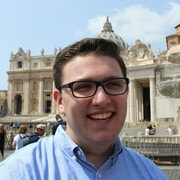
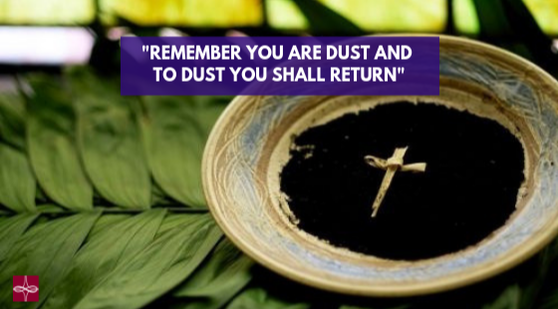

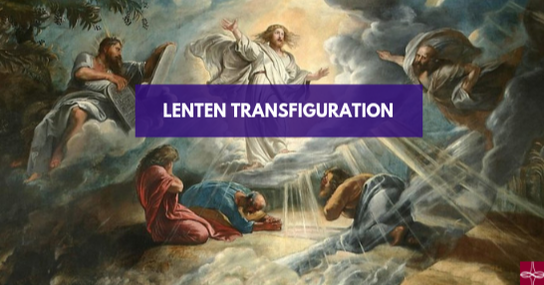

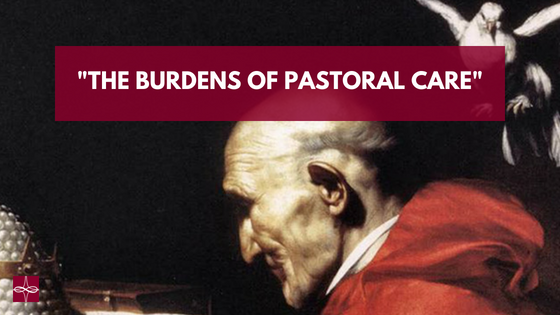

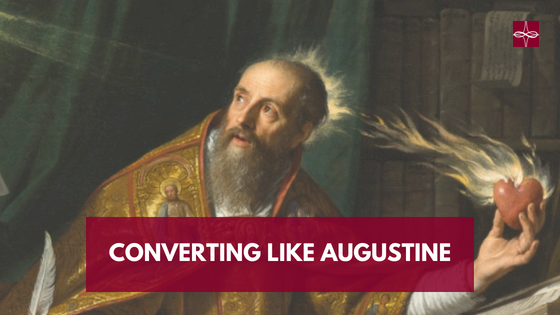

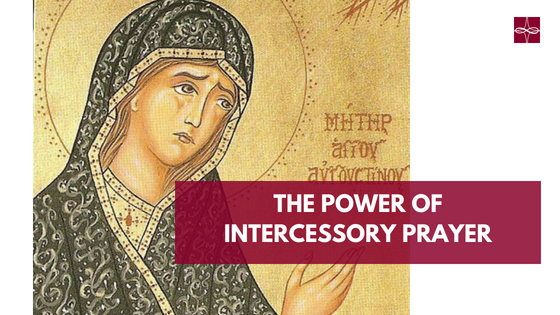


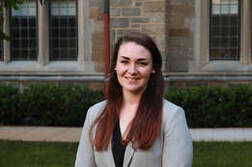
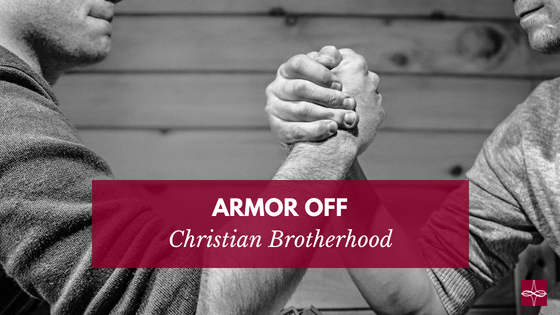

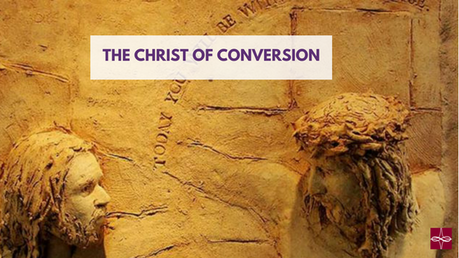


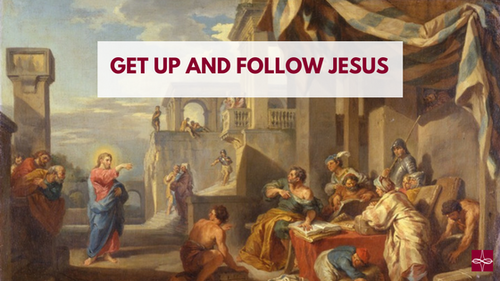
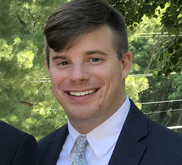
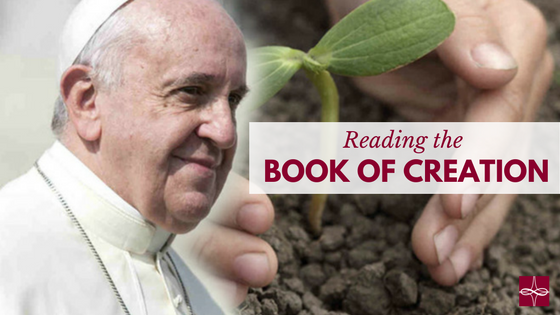
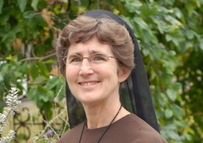
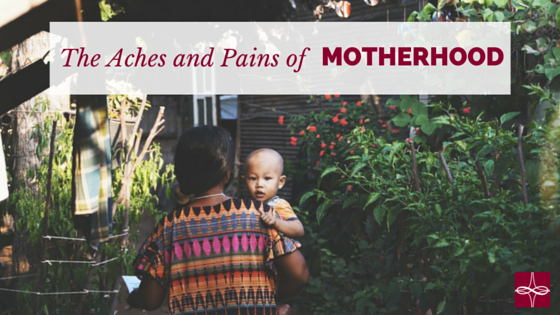



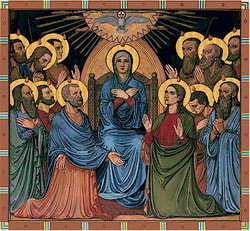
 RSS Feed
RSS Feed